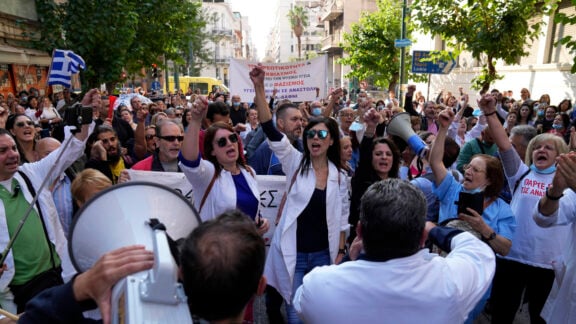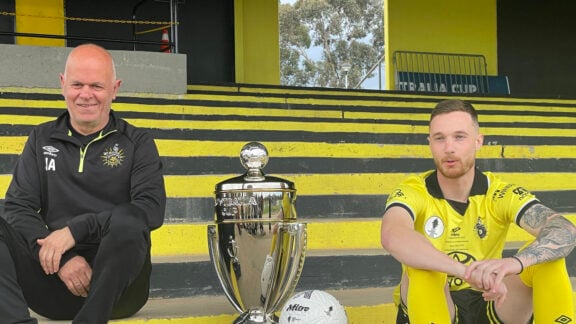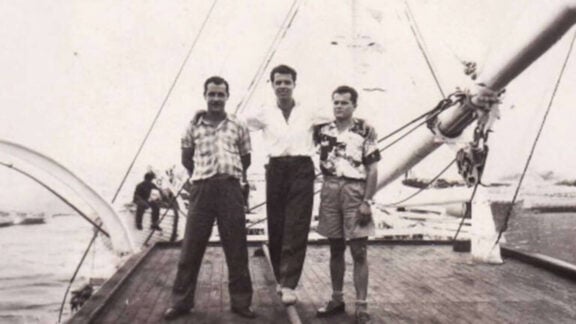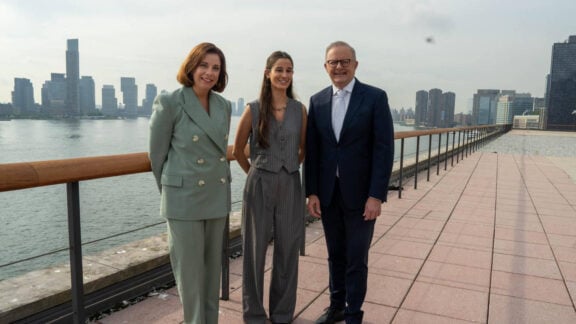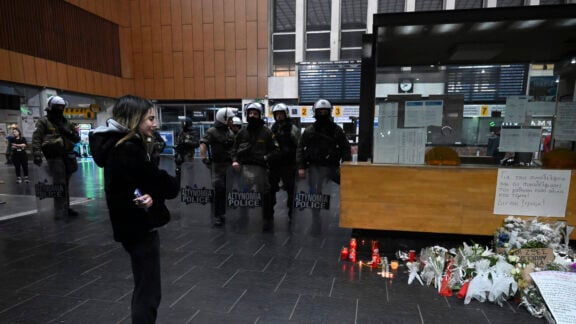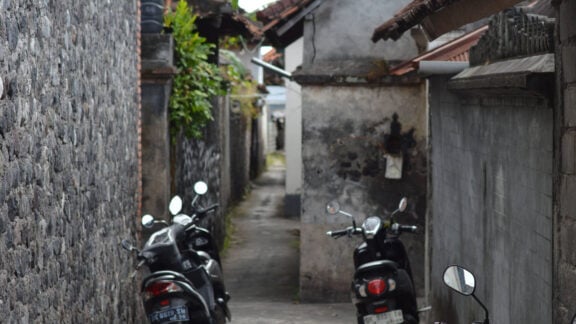This year marks the 50th Anniversary of the Athens Polytechnic uprising of November 1973, when students and citizens rejected the Greek military Junta of 1967 to 1974.
On November 14, 1973, students began demonstrating at the Polytechnic School of Athens (Metsoveio Polytecneio) on the corner of Patission and Sournari Streets, about one hundred meters from the National Archaeological Museum of Athens.
“Greeks, the tanks have turned their cannons towards the Polytechnic. The students have unbuttoned their shirts and are revealing their chests. They have tanks. We are unarmed, we are unarmed. We don’t even have a stone to throw,” the students were calling out in 1973 as the Junta’s tanks began to roll into the Polytechnic.
The students’ uprising escalated into an open revolt. It ended in bloodshed in the early morning of November 17 after a series of events, starting with a tank crashing through the gates of the Polytechnic.
The colonels that led a far-right coup on April 21, 1967, tortured, jailed, and exiled thousands of Greeks.
For over 50 years, hundreds of thousands of people have gathered in the courtyard of the Polytechnic to place flowers on the monument by sculptor Memos Makris that has been associated with the fallen students and on the railings of the old iron main gate, where the tank crashed through at 3 am on November 17, 1973. A photojournalist, Aristotle Sarrikostas, captured the historic moment. Sarrikostas’s photos and a short 35-second film by Dutch cameraman Albert Kurand contradicted Junta’s initial statements that “nothing happened” at the Polytechnic.

Neos Kosmos recorded the events, and below are some of the period’s front pages :
Neos Kosmos wrote in capitals on November 19, 1973: “30 DEAD – 200 WOUNDED” – “ATHENS COLLAPSES.
“State of siege throughout the country. – The airports are closed. The fascists have bloodied the capital. – A wave of arrests. The detention centres are full,” read the subtitle.
From that day on, the front pages of Neos Kosmos reported on the events that changed the course of Greece’s history.
“STREET FIGHTS IN THE MAIN STREETS” was on the front page of Neos Kosmos.
“Massacre and terror, the military regime is trying to suppress the uprising of students and workers who poured into the streets of Athens as they demand Freedom, Democracy, Independence.”
“Despite the cold-blooded killings and intensified repression, despite the occupation of Athens by large mechanised military and police forces, the students continue to resist.”
“MELBOURNE COMMUNITY PROTESTS TO THE UN”
The Executive Committee of the Board of Directors of the Greek Orthodox Community of Melbourne yesterday Sunday sent a telegraphic protest to the UN Secretary-General, Mr Waldheim, about the events in Greece and requested his immediate intervention to stop the bloodshed”.
Then followed: “Siege. The regime’s first action after the massacre was to declare a state of Siege throughout Greece and to prohibit movement to the inhabitants of cities with a population of more than 5,000.”
“Street fighting continues in the centre of Athens… Tanks have been deployed in the area where the government buildings are located. The military has also occupied all the strategic points of the Greek capital, and air communication with Greece has been interrupted.
“DEMONSTRATION AT THE CONSULATE IN MELBOURNE”.
“Yesterday afternoon (Sunday), the Committee for the Restoration of Democracy in Greece (Melbourne Branch) met in an extraordinary meeting and, after discussing the latest shocking events in Greece, decided to call for the support of the Australian people, government and trade unions in stopping the neo-fascist atrocities.”
“The Committee further resolved to call upon the Hellenism of Melbourne to demonstrate outside the Greek Consulate in Melbourne.”
In the November 22 1973 edition, the Neos Kosmos front page read: “BLOCKADES IN ATHENS AND THE PROVINCES- The Junta fears a new revolt – Boycott of Greek ship in Melbourne
“While in Athens and throughout the country is suffering from an orgy of arrests under occupation, the number of those arrested, according to foreign news agencies, has long since exceeded 2,000.”

Then followed: “GREEK SHIPS EMBARGOED IN MELBOURNE”
“The Australian dockworkers’ union has expressed its solidarity with the Greek people. Since yesterday morning (Wednesday), they began to ‘tie up’ Greek ships arriving in Melbourne in protest at the murder of Greek patriots by the Papadopoulos’ fascist regime.”
The cargo ship Agia Marina’ was moored at Pier No. 4 of Victoria Dock, as was the ‘Hellenis’.
“DELEGATION TO CANBERRA – ORGANISING DEMONSTRATION AND STRIKE OUTSIDE THE CONSULATE”.
“Our Community condemns horror towards for the bloodshed of Greek youth and workers by the awful Papadopoulos regime.
The front page of November 26 1973, carried a headline of the last hour’s developments from Greece: “PAPADOPOULOS HAS ENDED”.
The Junta attempted to renew its support through a referendum on the monarchy and incremental democratisation, but it was thwarted by another coup led by hardliner Dimitrios Ioannidis, who ruled it until the regime finally collapsed on July 24 1974.
On Tuesday, November 27, an extra edition of the Neos Kosmos was published with the front page headline: “HOW PAPADOPOULOS DID IT – PATTAKOS, MAKAREZOS AND CO…”.
It was a dark period, and the brave students and citizens overthrew one of the most cruel regimes in Greece’s modern history.
Melbourne Events marking 50th anniversary of the Polytechnic
The Polytechnic University Remembrance Committee will be laying wreaths at the Australian Hellenic Memorial, at Shrine of Remembrance with an invitation all community organisations who wish to lay a wreath.
The Greek Community of Melbourne Schools are producing a booklet with short stories and the illustrations by students in relation to the events of 1973.
The Committee is organising an event on Sunday, November 19, at 2pm, at the Victorian Trades Hall Carlton Loading Bay (54 Victoria St., Carlton) to mark the 50th Anniversary of the heroic revolt of the Polytechnic students against the Junta of the Colonels.
The event programme includes speeches, video screenings, testimonies, documents from the period of the Polytechnic, and a rich musical programme. Participants include the Alphington Grammar Youth Orchestra, Dimitris Tafidis, an adult group from the Creative Centre for Drama and Arts of the Greek Orthodox Community of Melbourne and Victoria and musicians Achilleas Giagoulis, Antonis Iliou, Nikos Kapralos, Vassilis Michelakis, Anthi Sidiropoulou, Orestis Sofokleous and Stelios Tsiolas.
Admission to the event is accessible to the public.
Sydney Events
Combined Universities Greek Association (CUGA), representing four Greek student organisations at Sydney’s major universities, have come together to hold a commemorative event.
It has been organised for this Friday on the date of the Uprising, November 17, at 6.30 p.m., and will be held at the New Law Annexe Lecture Theatre 101 at the University of Sydney (USYD).



